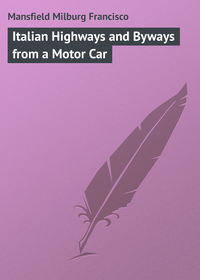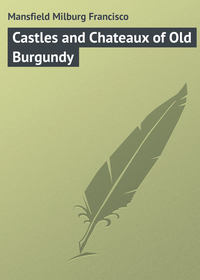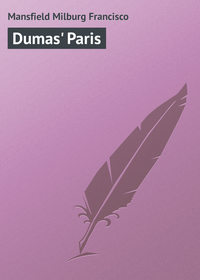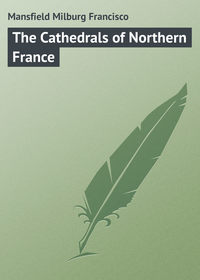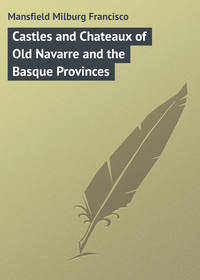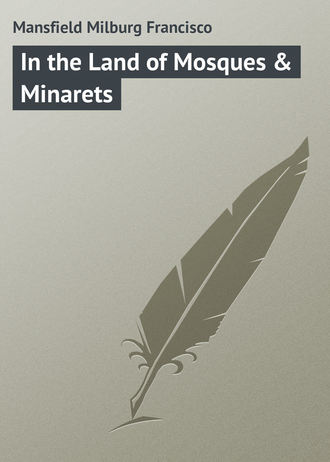 полная версия
полная версияIn the Land of Mosques & Minarets
An Arab shepherd is a happy mortal if he can gain twenty francs a month, a little pap for breakfast, a dish of couscous for dinner, and a new burnous once a year. He will spend all his income (for he, apparently, as all his tribe, has acquired a taste for strong drink, though even he will not partake of it when it is red) on absinthe, of a kind, and tobacco, of a considerably better kind, every time he comes to town. How he clothes himself had best not be inquired into too closely, for excepting the burnous, he is mostly clothed in rags. The burnous is as effectual a covering as charity.
The Arab officials, the Sheik of a tribe, the Caïd, and the Cadi even, are all “decorated” as a sort of supernumerary reward for their services on behalf of the established government.
One day en voyage– in a compartiment of that slow-going express train which runs daily from Algiers to El Guerrah, and takes fourteen hours to do what it ought to, and will accomplish, in six, when they get some American locomotives to take the place of the old crocks now in service, – we met a young Caïd of a tribe of the Tell who had been summoned to Algiers to get the collaret of the Legion bestowed upon his manly breast. He was decorated already, for he was the son of the “Great Tents” and a powerful man in his community, but he was ready enough to make a place for another étoile. He said in his queer jargon French: “Li gouvernement y vian di me donni l’Itoile di Ligien. Ji suis content d’avoir.” We sympathized with him, were glad for him, and we parted, each on our respective ways, and by this time he is home waiting and hoping for the next. What won’t a man do for a bout de ruban or a silver star?
The Arab’s French is much like our own – queer at times, but it is expressive. The following beauties of judicial eloquence, from the bench of an Arab justice of the peace will explain the situation better than any further comment. With the Arab the Irish “bull” becomes a French “goat.”
“On peut entrer dans un cabaret sans être l’amant de quelqu’n.”
This is good enough French, though the sentiment is of doubtful morality.
“Le plaignant a lancé, alors, un coup de sifflet de désespoir.”
A “sifflet de désespoir” is presumably something akin to a wail.
“Le plaignant s’est adressé à la police parce qu’il désirait rentrer dans ses bouteilles.”
“Dans ses bouteilles,” may be Arab-French for “in his cups” – or it may not.
“Il portera de deuil aussi longtemps que sa femme sera morte.”
She will be dead a long time, no doubt, once having taken the fatal step.
“Je dirai encore deux mots, mais je serai très brief.”
Two words! That is very brief.
“Il n’a laissé que des descendants en ligne collatérale.”
What is a collateral descendant?
The Arabs’ struggles with French should give the rest of the world, who are not French, courage. They seem to care little for tenses or numbers, but they make their way nevertheless. A Zou Zou, in calling your attention to something, says simply, “Regarde,” but you understand, and so does he when you say “Regardez,” so what matter!
The Arab nourishes himself well, as well as circumstances will allow, though it must be remembered that the tenets of his religion call for abstemiousness. He differs from the Greek of old in that he believes in a good dinner and a light supper. “Eh bien!” said the traveller Montmaur, “I will dine with the Arab and sup with the Greeks.”
The Arab is a connoisseur in tea and coffee, and an adept at cigarette smoking.
Couscous is the plat du jour with the Arab. It is his national dish. Mutton or lamb (kebeh or kherouf) is almost the only meat, and most frequently the Arab roasts the carcass whole, spitted on a branch. He roasts it before, or over, an open fire, and accordingly it is all the better for that. In America we bake our meats, which is barbaric; and in England they boil them, which is worse. The Arab knows better.
The Arab eats his meat à la main, gnaws it with his teeth, and pulls it apart with his fingers; the delicate morsel, the titbit, is the kidney, and he is a lucky Arab who grabs it first, though if you are a guest in his tent he reserves it for you. Beef is seldom, if ever, eaten, but camel is in high esteem, the hump (hadba) being the best “cut.” Pork (el hallouf) is abhorred by the true Mussulman. He has reason! Dried meat or smoked meat, like the jerked beef of the Far West, is often carried on long desert journeys, when fresh meat is as scarce a commodity as it was on an Indiaman a hundred days out from Bombay a century ago.
The Arab eats soup, when he takes the trouble to make it, and he knows well its concocting. For pastry, too, the Arab has a sweet tooth, and it also frequently comes into the menu, with honey and dates predominating in its make-up.
The Arab smokes kif also, a concoction whose iniquitous effects are only equalled by those of the state-protected opium of Bengal.
These voluptuous epicurean Arabs smoke kif, not surreptitiously, but guiltily. Carefully they wipe their pipes and cook the little ball of drug, and offer it to you first with all the grace and seductiveness of a houri. You don’t accept, and they smoke it themselves, and in a short space drop off into a semi-intoxicated condition, forgetful of the world in the stupefying smoke which haloes about their heads. Like opium with the Chinaman, kif is the curse of the Arab.
After the Arabs and the Berbers, the Jews are the most striking race one meets on the African coast, or even in the interior, where they herd to themselves in some dingy quarter of an Arab village and ply their trades of jewellers, leather workers, embroiderers and, of course, as money changers. They talk Hebrew among themselves and Arabic with natives, and they are as clannish as Scotchmen.
The Berber and the Jew and the Arab are necessary to each other, whether they are town dwellers, village inhabitants or nomads. They make business, each of them, and they don’t live by taking in each other’s washing – as does the indigenous population of the Scilly Islands, or by exploiting tourists – as do the Swiss. Altogether the social system as worked out by the mixed races of North Africa seems to be a success.
One curses the Jews in Algeria and Tunisia, but then one curses them everywhere for the same attributes. The Hebrew of Algeria is in no way different from those of his brethren in other Mediterranean countries, and here he has a craftsman’s mission to fill and he fills it very well. Catch a Jew and make him into a tailor, a jeweller or a banker, and he is more adept at these professions than men of any other race on earth.
Are the Jews and Mussulmans men like other sons of Adam? This is a question which has been asked and reasked since the earliest times of history, and no one yet seems to have decided the question. When the Papal See was transferred to Avignon in the Comtat Venaissin (it was for seventy years rooted in France), the position of the Jews seems to have been defined, and they were put on a par with orthodox religionists. But before and since, their status has been less readily defined. Froissart put it in non-contradictory words when he said that except in the lands of the church (in the Comtat), these aliens were everywhere chased and persecuted.
This reference to the church and the Jews recalls the fact that many Arab slaves of Barbary were owned by the Papal powers in the days when the traffic was a profitable one for Turkish pachas.
The slaves of Barbary were known all through the Mediterranean. Civita Vecchia in the eighteenth century, directly under Papal patronage, held a number of them of which the following is a description from an old record: —
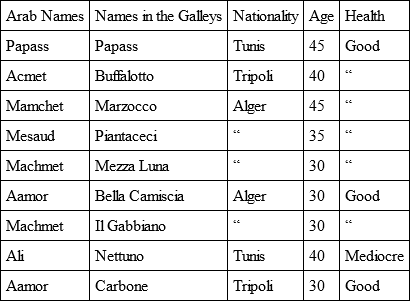
These men in fact were for service in the Pontifical galley.
They were a fine race of servants, evidently!
The Jews are much less numerous in Algeria than in Morocco and Tunisia, but they take on a very considerable commercial importance in the picturesque conglomerate ensemble of peoples in the cities like Algiers, Oran or Tunis; they gather the small savings of the nomad races in a way that is the marvel of all who know their trade. Furthermore, as French citizens, they play no small part in political affairs. What they lack in numbers they make up in power, and the money-lending trade, while seemingly in disrepute, is quite a necessary one in commercial communities.
The Jews lend money to Christians the world over, men and nations alike, and in Africa they do the same to the improvident Arab. Clearly the Jew has a mission in life; he has found it out, and he sticks to it, and has ever since that historic hour in the Temple.
Of all the mixed races with which one rubs shoulders in Northern Africa, it is the Arab who interests us most. It is his country that we are in. It is the Arab who must be our guide, philosopher and friend. “Ask an Arab anything you like,” say the French, “but ask nothing of a Maltese or an Italian.” Why, they do not tell you, but simply shrug their shoulders in the expressive Frenchman’s way.
CHAPTER IX
SOME THINGS THAT MATTER – TO THE ARAB
THERE are three kinds of noblesse among the Arabs: there is the aristocrat class, the noblesse de race, descended, so they think, from Fatma, the daughter of the Prophet; the noblesse militaire, descendants of the Arab conquerors, of which Mohammed and his family are also descended; and finally the noblesse réligieuse, a hereditary noblesse like the preceding, but a distinction that can only be acquired by meritorious performance of a religious duty.
The tribes each have a head known as a Caïd, and each tribe is divided into smaller tribes and factions who obey implicitly the sub-head or Cheikh (sheik). The head of a douar, – a group of tents, – if the collection is not great enough to have a presiding Sheik, is a sort of committee, like the bodies of selectmen of a New England village.
Over and above all indigène control, the French administration is the real head of the Arabs in Algeria, and the Tunisian French fonctionnaires hold the same powers in Tunisia.
The Arab or Kabyle chiefs in Algeria are merely the agents for the execution of the government’s laws, civil or military, and in Tunisia the laws for each province (outhan) are made known to the Caïd by the authorities, and it is he who is held responsible for their observance. As for punishment for a crime committed, – for they are not all plaster saints, – the Arabs would much prefer the old Turkish bastinado to a sentence behind prison walls or a fine in money, sheep or goats. Does civilization civilize?
The Arabs are full of wise saws mostly adopted from the Koran, or from the Apocryphal books of the Prophet. They have a saying which might well be put into a motto suitable for the creed of any man: —
“El-Khams, El-Miter, El-Ansab and El-Aglane are the inventions of the devil.”
El-Khams is worry; El-Miter is gambling; El-Ansab are the stones or thorns in one’s road; and El-Aglane is the argument by sword instead of by reason. The following might well be printed in Gothic script and hung in our own “dens” and boudoirs along with Stevenson’s “Prayer.”
“When a woman says to her husband, I have never received a single benefit from you, all the good acts she may have done lose their value.”
“God detests those who show pride before their companions.”
“Go a mile to visit a sick man, two miles to reconcile a pair of quarrellers and three miles to see a holy man.”
“When you think of the faults of your neighbours, think also of your own.”
“He who salutes thee first is free from pride.”
“God hates dirtiness and disorder.”
With respect to this last, the Arab performs his ablutions with great regularity and devotion, but by contrast, curiously enough, enshrouds himself frequently in dirty, verminous rags.
The most detested sequence of events that can happen to an Arab are ranked as follows: —
I. The drunkenness which makes a fool of a man.
II. The sleep which dissipates the drunkenness.
III. And the chagrin which destroys the sleep.
The emotion has been felt by others, who cannot slip on and off the peau de chagrin as did Balzac’s hero.
The Arabs explain their abstention from wine by an act of the Prophet forbidding its use.
One day the Prophet saw, in passing, a group of young men who were making free and drinking of wine. He blessed them, saying, “Drink at your ease, you have the benediction of God.” At the end of a brief interval the Prophet, passing that way again, saw them disputing among themselves, and learned that one had been killed. Thereupon he vowed upon their heads that “wine was a curse upon them, and that not one who was given to it should hope to enter Heaven.”
Among the Arab indigènes to-day, one remarks an almost total abstention from the “wine when it is red.” Contrariwise they may frequently be seen drinking white wine, and indeed they have a great fondness for champagne, – but they are not particular about the brand, the label on the bottle means nothing to them, so long as it is a gaudy one, and so, like many Americans, they drink something which they think is champagne, and is just as “heady.”
Arab hospitality is famous, their very manner of life, even to-day, as in olden times, makes it a sort of compulsory tenet of their creed.
“Ida andek ktir, ati men mulek.Ida andek glil, ati men galbeck.”“If you have much, give of your best.`If you have little, give from the heart.”Never ask an Arab his age; you will be disappointed if you do. The Arabs have no civil register and generally ignore their exact age, frequently reckoning only by some great event which may have happened within their memories, like the “Uncle Toms” and “Old Mammies” of “way down Souf.” With such a rule-of-thumb reckoning, you are likely to remain as much in the dark as before.
It is a belief among the Arabs that they can carry on a conversation with animals. Not all amongst them are thus accomplished, but the speech of animals, they say, can be learned, and many of their head men know it. They share this belief with other Orientals; but there is no proof that they have learned their lessons as well as did Garner in his attempts to acquire “monkey talk.” The Arabs, too, are superstitious. They believe in the evil eye, and they object most decidedly and vociferously if you point your finger at them; also, they wear charms and amulets against disease and disaster.
They used to object to the camera man and the artist, but to-day, since they have come to learn that you carry away with you no actual part of themselves, only an impression, their attitude has changed.
The Arab warrior must have ten qualities, or he is déclassé in the favour of all other Arabs.
I. The courage of a cock.
II. The painstaking of a chicken.
III. The heart of a lion.
IV. The brusqueness of a wild boar.
V. The tricks of a fox.
VI. The prudence of a hedgehog.
VII. The swiftness of a wolf.
VIII. The resignation of a dog.
IX. The hand always open.
X. The sword always drawn, and one sole speech for friend or foe.
The Arab warrior, save as he now serves France, has disappeared, but his precepts were good ones for a soldier.
The Arabs’ regard for womankind has often been misunderstood and misstated. Not all Mussulmans have the same noble regard for womankind. The Turk and the Persian is notably a tyrant in his home; and, among the Arabs, the Bedouin is frequently a brute towards his wives and daughters; but the conventional Arab-Berberisé is quite compassionate and liberal in his views and treatment of the female members of his family.
“Auprès de Dieu, le maître du monde, une fille vaut un garçon.”
Thus say the Arabs, but in practice it’s all the other way. The boy stays with the family and adds his strength and talents to his father’s tribe; but the daughter, arriving at the marrying age, which comes early with the Arabs, leaves not only her family, but the ancestral douar or community, perhaps even the tribe, and goes where her new master pleases.
In a word, the boy is another sword or brain for his family’s interests, whilst the daughter goes to augment those who may, perhaps, at some future time, be enemies of her parents.
From this one judges that with the Arabs, as with many other exotic nations, the birth of a son brings real joy to the parental roof-tree; but that of a girl merely a lukewarm expression of gratification, or perhaps nothing more than a disappointed resignation. If it is a boy that is new-born, the parents are congratulated with: “God has made you a good gift!” If it is a girl: “May you be as happy as possible!” is considered as all that is needful, a sort of commiserating congratulation this, and the father perforce responds ordinarily: “Zaddat di nââla!” (“It is my sorrow.”)
Once the child is born, the sex determined, the “rejoicings,” properly called, do not differ in one case from the other, for the Arab believes profoundly in Mohammed’s diction – “These are the innocents and the Fête des Anges must be the same in each case.”
Seven days after the birth, the baby daughter’s Fête de Naîssance takes place in presence of the Caïd, the marabout, parents and friends. The women cry and sob joyfully, and dance with the abandon of a dervish, and the screech and roll of the guellal and the flute make things hideous for one who has no special responsibility bound up in the event. The men, too, give themselves over to the dance quite as vigorously and quite as gracefully as do the women, and a feast – all birth and wedding celebrations end with a feast – terminates the great event so far as a general participation goes. The eternal couscous is the pièce de résistance, with dates, raisins, figs, honey, butter and milk in addition.
For a choice of names for their little daughter, the Arab parents, almost without exception, choose one of the following: —
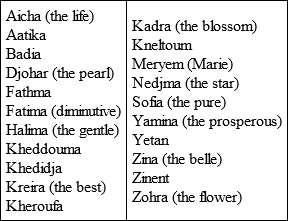
Sometimes the child is given the name of some female friend of the family, who agrees to act as godmother through the early years of its life, and is obliged to spend a relatively large sum of money in supplying a baptismal present, as do godmothers the world over. The boy under the same circumstances would probably have been named Mohammed or Achmed and have done with it.
After the actual naming ceremony the great bracelet talismans are put on the girl-child’s arms, and a little later a similar decoration will be given her for her neck. If the parents are rich their children are often rudely sent away to be nourished and given strength beneath the shade of some Saharan oasis, not too far away but that they can be visited once a year. The nurse who guards the children in their desert home is called the second mother, but she is a nurse pure and simple and bears no relation to the godmother.
The child is carried pick-a-back by day, by one or another of its mothers, clumsily swathed in a none too clean-looking woollen cloth during the first few months, and at night is securely stowed away in a fig-leaf basket which is hung from the tent poles, a cradle which is soft, flexible and cheap.
In time light foods, such as the milk of goats, cows, or camels is given the child, and as early as possible it is told or shown how to take a bath – and made to take it whenever the idea enters the parents’ heads.
For dress, the girl is clothed as becomes the station and wealth of her parents; her ears are pierced in two or three places, but as no jewelry is worn by infants the holes are kept open by silk cords.
The home life of these early years is very much en famille among the Arabs of the countryside, with horses, oxen, and cows as dwellers under the same roof.
As soon as possible the child is taught to pray according to the religion of its parents. Each prayer is preceded by an ablution. Truly the Mohammedan religion is a cleanly and purifying one!
The practical education of an Arab girl commences when she is shown how to cut and fit a burnous (nothing of the tailor-made or Paris mode about this to make it difficult; any one who can handle a pair of scissors can do the thing), to sew a tent-covering together, and the thousand and one domestic accomplishments of women everywhere, not forgetting spinning and weaving.
In the poorer families, those who live in mean, ragged tents, not the “Great Tents,” the child is most likely first set to doing the cooking. At the age of fourteen or fifteen, she begins to “take notice” of the youth of the other sex, meanwhile partaking of the fare of the family board only when there are no strangers present. During visits to friends and neighbours, or to the marabouts, or at fêtes given in her honour, the young Arab girl of whatever social rank is closely chaperoned, always accompanied by her mother. The daughters of the “Great Tents” are veiled from their tenth year onwards, only the poor remain with their visage uncovered. Music is a part of the early education of the Arab girl. She learns to dance, yatagan in hand; and to play the bendir, a sort of Spanish tambourin, and the touiba, a similar instrument, somewhat smaller and less sonorous.
At an early age, too, she learns the rudiments of the arts of coquetry. She puts rouge (zerkoun) on her face, and blacks her eyelids with koheul; and, finally, colours the tips of her toes and fingers a coppery red with henna. She has her wrists and ankles tattooed in bands or bracelets; and paints beauty spots, a star or a crude imitation of a fly, on her cheeks or forehead. By this time she is thought to be a ravishing beauty.
Even the poorest of Arab families guard their daughter’s honour with the greatest circumspection, never a doubtful word or phrase is uttered in her presence. She is brought up in the greatest purity of atmosphere. Should there be any doubts as to this, her spouse, even on the marriage day, will send her back to her parents dressed in a white burnous – with no thanks. Dishonour can be punished by death. The Cadi is the referee in all matters of dispute or doubt of this nature, and his word is final.
Among the wealthiest tribes the daughters are often promised in marriage at the age of four or five, and frequently they marry between ten and fifteen. Indeed they must marry at an early age or people say unkind things about them. In the Sahara the rich marry three or four wives, the poor one, rarely two. One may not marry but one wife in any one year.
The Arab proverbs concerning women are many and mostly complimentary.
“The quarrelsome wife is for her spouse a heavy burden, but a happy wife is as a crown of gold.”
The Arab poet says of his chosen type of female beauty: —
Hair black as the feathers of the ostrich.Forehead wide and eyebrows thick and arched.Eyes black like a gazelle’s.Nose straight and finely modelled.Cheeks like bouquets of roses.Mouth small and round.Teeth like pearls set in coral.Lips small and coloured like vermilion.Neck white and long.Shoulders broad.Hands and feet small.Manners agreeable.Laughter delicate.“She must laugh soberly, must not gad about nor dispute with her husband or neighbours, have a well-governed tongue, may rouge slightly, guard well the house, and ever give good counsel.”
The formula might well be any man’s ideal; though the Arabs say when you meet this paragon of a woman, you become crazy, and if she leaves you, you will die. All of which may be true also! The ideal is one made up of an appalling array of virtues.
An Arab tale tells of a warrior horseman, El Faad-ben-Mohammed, rich in this world’s goods and lands, who met a certain Oumya-bent-Abdallah, and would marry her, so beautiful was she. He sent his emissary to her to plead his cause, for he was timid in love, if brave in war.


